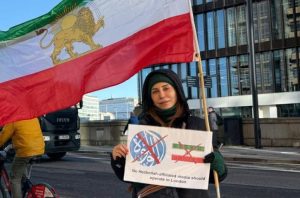MK party’s power problem: The fragility of proximity politics

Floyd Shivambu’s redeployment from the position of secretary general of the uMkhonto weSizwe (MK) party to a seat in parliament is not simply a procedural shift. It is a symbolic moment that pulls back the curtain on the inner workings of a party still constructing its identity — and, more crucially, its power logic.
What this moment makes increasingly difficult to ignore is that the party’s internal architecture does not yet rest on collective governance or principled leadership. It rests, quite plainly, on proximity. Proximity to the president general. Proximity to Jacob Zuma.
Whether framed as discipline or realignment, Shivambu’s redeployment — following a controversial trip to visit the self-proclaimed prophet, Shepherd Bushiri, who fled to his home country while out on bail for charges including fraud and rape — confirms a pattern we’ve seen brewing.
In the MK party, political power is often determined not by mandate or merit, but by access. It is not a political machine with autonomous moving parts, but a gravitational field orbiting one figure.
And this is not said to villainise the party. If anything, it emerged precisely because its founders felt other formations had drifted too far from accountability, too far from the masses, too far from the revolutionary ethics they once claimed to embody. The MK party was meant to offer something different. Perhaps even something radical.
But this is where it gets complicated. If difference is defined by unwavering loyalty to one individual — regardless of title or structure — then how different is it really?
Shivambu’s reassignment, reportedly justified by a clause in the party’s constitution prohibiting international engagements that conflict with the party line, might appear procedurally sound. However, political observers can’t help but note the speed and decisiveness with which this rule was invoked — and for this individual. It’s not the rule itself that tells the story. It’s when and for whom the rule is enforced.
We are seeing a party where key positions — secretary general, spokesperson, even senior deployees — do not enjoy stable mandates. They exist at the mercy of internal currents, shifting alliances and, perhaps most significantly, Zuma’s confidence. Today you are central. Tomorrow, the centre moves without you.
And this is precisely the problem with proximity politics: it is inherently fragile.
When power flows through informal networks and personal bonds, it becomes difficult to institutionalise accountability, manage internal dissent and ensure consistent policy direction. You can be right and still be removed. You can be effective and still be sidelined. Because the metric is not effectiveness — it’s alignment.
This is why Shivambu’s removal matters beyond his person. It points to a deeper reality in the MK party — that its centre of gravity is not ideological coherence or organisational structure. It is one man. And that has consequences.
This is not a judgment about Zuma as an individual. It is a political concern about what happens when the centre cannot hold.
The MK party’s biggest challenge is not winning court cases or keeping its logo. It’s this: how does a party that centralises so much power in one figure imagine itself beyond that figure?
Because proximity works — for a while. It works when the central figure is present, powerful, active. But what happens when the centre can no longer hold? When the ear you once spoke into is no longer there? Zuma is not a young man, and history is filled with movements that could not survive their founders.
If the MK party is to truly become the political home for a return to revolutionary ethics, then it must ask itself: can it build a structure that outlives proximity?
That is the real revolutionary task. Not merely to rally around the centre but to prepare for its eventual absence.
Thando Mzimela-Ntuli is the president of the National Executive Economic Collective.



